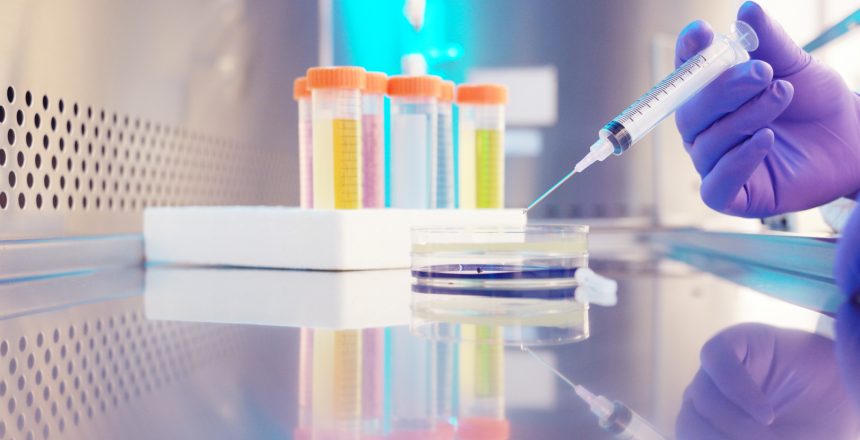As the popularity of hemp-derived cannabinoids grows, so does the concern about drug testing. Many individuals wonder if using HHC (Hexahydrocannabinol) will cause them to fail a drug test. In this comprehensive guide, we will explore the factors that affect drug test results after using HHC. We will delve into the detection methods, the potential for false positives, the legality of drug testing, and offer tips to help you make informed decisions about using HHC while navigating drug tests.
Understanding Drug Tests
Drug tests typically analyze bodily fluids or hair samples to detect the presence of specific substances, including THC (delta-9-tetrahydrocannabinol). However, drug tests do not typically target HHC specifically since it is a lesser-known cannabinoid. Instead, they primarily focus on THC due to its psychoactive properties and prevalence in cannabis products.
HHC and THC Cross-Reactivity
Since HHC is structurally similar to THC, there is a possibility of cross-reactivity in some drug tests. Cross-reactivity occurs when a substance other than the targeted compound triggers a positive result. While it is less common for HHC to cross-react with THC-specific drug tests, there is a potential risk, and false positives could occur. It is crucial to consider this factor when using HHC and preparing for a drug test.
Types of Drug Tests
Different drug tests have varying levels of sensitivity and target different substances. The most common types of drug tests include urine tests, blood tests, hair tests, and saliva tests. Urine tests are the most common and affordable option used by many employers. Blood tests are less common but offer a more accurate measure of recent drug use. Hair tests have a longer detection window, and saliva tests are typically used for detecting recent use.
Detection Window
The detection window for HHC and THC in drug tests can vary depending on several factors. THC is typically detectable in urine for up to 30 days after use, depending on frequency and dosage. However, since HHC is not as extensively studied as THC, the exact detection window for HHC is not well-established. It is advisable to assume a similar detection window as THC to be cautious.
Legal Considerations
The legal status of HHC varies from jurisdiction to jurisdiction. While it may be legal in some regions, it may fall within a legal gray area or be explicitly illegal in others. It is essential to understand the laws and regulations regarding HHC in your specific country or state before using it. Additionally, some employers have policies that prohibit the use of any cannabis-derived substances, including HHC. Consider the legal implications and potential consequences before using HHC if you are subject to workplace drug testing.
Mitigating Risks
If you anticipate a drug test and have recently used HHC, there are a few steps you can take to mitigate the risks of a positive result. Firstly, consider stopping the use of HHC well in advance of the test to allow for the substance to clear from your system. Additionally, staying well-hydrated and engaging in regular exercise can support the body’s natural detoxification processes. However, it is important to note that these measures are not foolproof and individual factors can influence the elimination rate of cannabinoids from the body.
Drug Test Accuracy and False Positives
Drug tests are not infallible, and false positives can occur for various reasons. Factors such as cross-reactivity, lab errors, or contamination of samples can contribute to false positive results. If you receive a positive result for THC after using HHC, it may be beneficial to request a confirmatory test or provide additional information to support your case. This could include disclosing the use of HHC and presenting any supporting documentation or lab test results to help clarify the situation.
Consultation with Professionals
If you have concerns about drug testing and the potential impact of HHC use, it is advisable to consult with professionals such as healthcare providers, lawyers, or human resources personnel. These professionals can provide personalized guidance based on your specific circumstances and legal jurisdiction. They can help you understand the risks, legal implications, and potential strategies to navigate drug tests successfully.
The Importance of Drug Testing
Drug testing is a common practice in various settings, including workplaces, athletic organizations, and legal proceedings. Its purpose is to detect the presence of certain substances in order to assess compliance, safety, or eligibility. While drug tests primarily focus on illicit drugs, they can also target legal substances, such as cannabinoids derived from hemp, including HHC. Understanding the purpose and implications of drug testing is essential when considering the use of HHC.
Differentiating HHC from THC
While HHC and THC share some similarities in chemical structure, they have distinct properties and effects. HHC offers a milder and more manageable high compared to THC, making it an attractive option for individuals seeking alternative cannabis experiences. However, when it comes to drug testing, it is important to differentiate between these compounds and understand how they may be detected to make informed decisions about HHC use.
Emerging Research on HHC and Drug Testing
As HHC gains recognition in the cannabis community, the scientific understanding of its detection in drug tests is still developing. Limited research has been conducted specifically on HHC and its potential interference with drug testing methodologies. This knowledge gap highlights the need for further research to establish accurate detection methods and guidelines for HHC in drug testing.
Transparency and Disclosure
When faced with a drug test and having used HHC, transparency and disclosure can play a significant role. It may be worth considering open communication with relevant parties, such as employers or testing facilities, to provide information about your HHC use. This proactive approach allows for an opportunity to explain the nature of HHC and clarify any potential misconceptions or concerns that may arise from a positive test result.
Personal Responsibility and Decision-Making
Ultimately, the decision to use HHC or any substance is a personal one that should be made responsibly and in consideration of potential consequences. Before using HHC, individuals should evaluate the importance of drug testing in their specific circumstances and weigh the potential risks against the desired benefits. This requires a thoughtful assessment of legal obligations, workplace policies, personal goals, and individual comfort levels.
Evolving Legal Landscape
The legal landscape surrounding cannabis and its derivatives, including HHC, is continually evolving. Laws and regulations regarding cannabis and drug testing can vary from one jurisdiction to another. Staying informed about the latest updates in your specific region is crucial to understanding the potential legal ramifications of HHC use and drug testing.
Conclusion
While HHC is a lesser-known cannabinoid, it is important to consider the potential impact on drug test results if you choose to use it. Cross-reactivity and the possibility of false positives are factors to be mindful of. Understanding the types of drug tests, the detection window, legal considerations, and seeking professional advice can help you make informed decisions about using HHC while minimizing potential risks associated with drug testing. Ultimately, it is essential to be aware of the laws and regulations in your jurisdiction and any workplace policies regarding cannabis use.
Monika Wassermann is a doctor and a freelance writer based in the UK who lives with her cat Buddy. She writes across several verticals, including life, health, sex and love, relationships and fitness. Her three great loves are Victorian novels, Lebanese cuisine, and vintage markets. When she’s not writing, you can find her trying to meditate more, weightlifting, or wandering around in town.
[email protected]
- Fizzy Fun: Exploring Melo THC Beverages! - April 22, 2024
- Exploring Jaw Slimming Techniques: Insights from Dr. Laura Geige - April 1, 2024
- Lip Fillers, Botox, Dermal Fillers, Anti-Wrinkle Injections in Arkley EN5 - March 22, 2024




